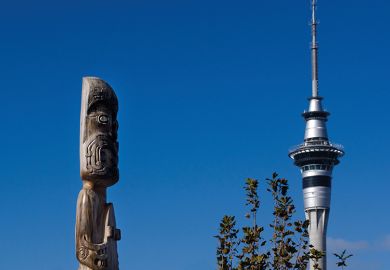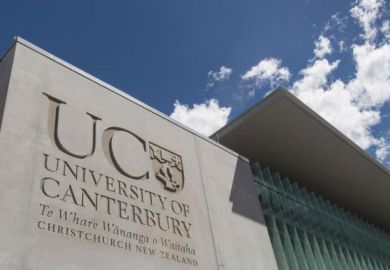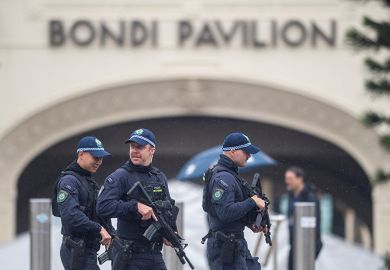Managerialism is the “linchpin” of an academic freedom “problem” sweeping New Zealand universities, according to the author of a comprehensive report on the subject.
James Kierstead said university administrators had been involved in all recently documented attempts to curtail academic freedom. Some university leaders had defended staff’s rights of expression, but others had facilitated efforts to muzzle academics.
“There are cases where…they’re actually some of the leading voices in shutting these things down,” Dr Kierstead said. “Administrators seem to assume that…if they allow academics to dissent from the orthodoxy, that’s going to hurt their university brand.
“We think [it] would enhance the university brand. Most people think of universities as places where people can actually discuss things rather than have the conversation dominated by one or two actors.”
In a 140-page report published by the New Zealand Initiative thinktank, where he is a senior fellow, Dr Kierstead summarises the findings of surveys by the New Zealand Free Speech Union (FSU), Heterodox New Zealand, the Tertiary Education Union (TEU) and the University of Auckland.
The report cites “testimonies” gleaned mostly from responses to the FSU’s 2023 survey. “The strategy for many academics is to voice no position unless it is conformist,” one said. “It gives implied cover to an orthodoxy that stands unchallenged.”
“The problem for academic freedom in New Zealand…is not some sort of bar on free speech [among] academics themselves,” said another. “It is the university leadership’s sad efforts to force us to publish in certain ways so their rankings go up.”
The report includes summaries of 21 “academic freedom incidents” at the nation’s universities. They include campaigns to have academics disciplined or sacked for ridiculing Islam, labelling religious people “cranks”, criticising environmental standards, endorsing Hamas and investigating university links with China.
Other incidents included the cancellation of an appearance by a former National Party leader, deplatforming of gender critical feminists, the “Listener letter” controversy over the status of Māori knowledge, microbiologist Siouxsie Wiles’ employment case over pandemic-era abuse she faced, a Beijing critic getting robbed and suppression of protests over Hong Kong’s extradition bill.
The report implicates most New Zealand universities – along with its Royal Society, TEU, New Zealand Association of Scientists and even the FSU – in attempts to curtail academic freedom. A Jewish FSU council member acknowledged his attempt to “cancel” a communications professor who had sympathised with Hamas after it massacred Israelis last October.
Many, but certainly not all, of the documented incidents involved pressure from what Dr Kierstead calls “progressive extremists”. “The people who need their free speech defended these days are on the right,” he said. “If you go back to the 1950s and 1960s – maybe even the 1990s – the people who needed free speech defending were under pressure from the conservative establishment.
“It’s in academics’ own interests to talk about this kind of thing. They need to be able to…admit there’s a problem. Universities keep losing respect among most of society. In the States it’s very clear, most starkly among Republicans but also now among Democrats and independents.”
The report says “safetyism” – the notion that students must be defended from words and ideas – has also underpinned many deplatforming incidents.
“Treating words and ideas as dangerous in this hyperbolic way will continue to make it more difficult for universities to fulfil their legal obligations to academic freedom,” it warns.
Register to continue
Why register?
- Registration is free and only takes a moment
- Once registered, you can read 3 articles a month
- Sign up for our newsletter
Subscribe
Or subscribe for unlimited access to:
- Unlimited access to news, views, insights & reviews
- Digital editions
- Digital access to THE’s university and college rankings analysis
Already registered or a current subscriber?








